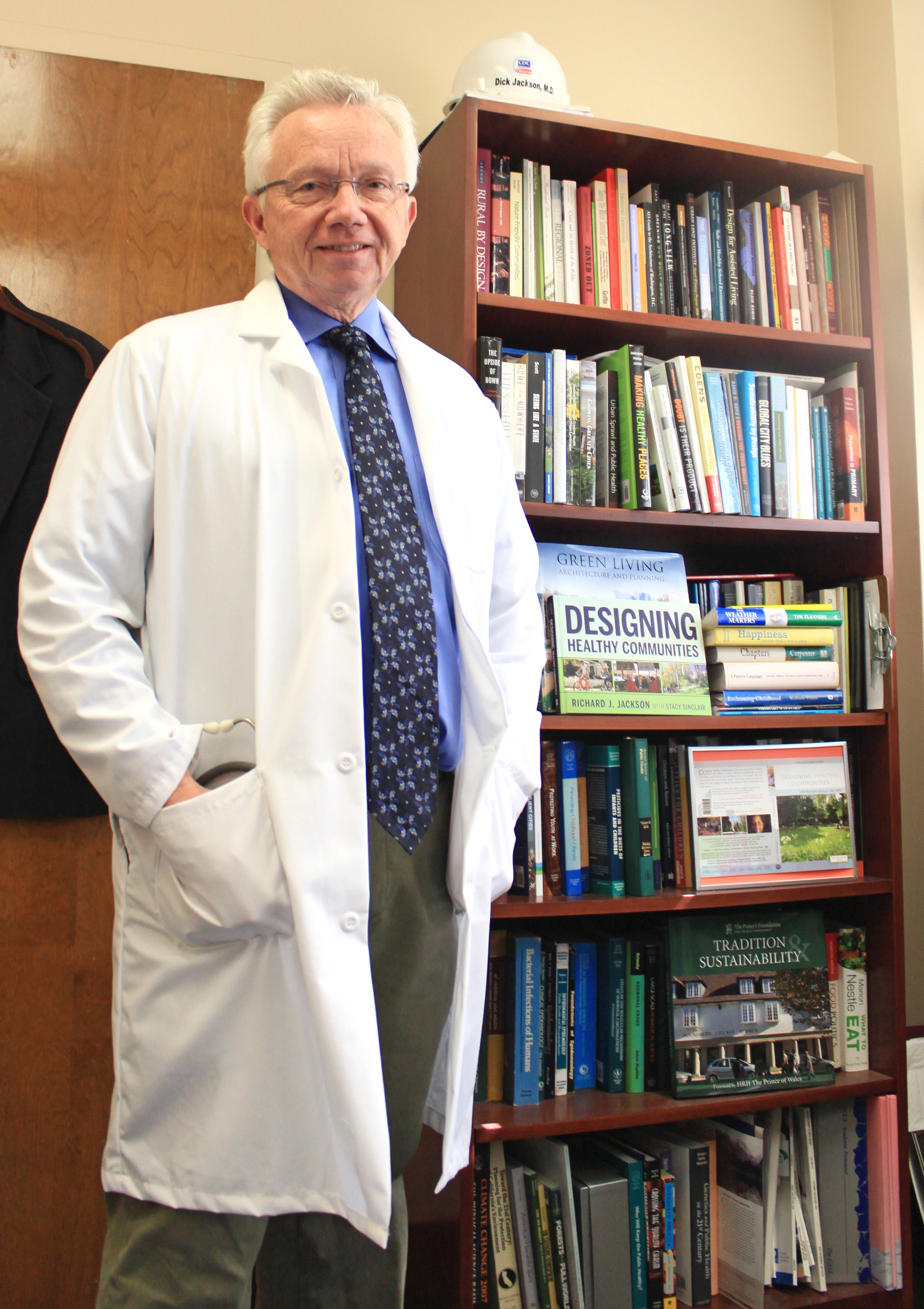As a child, Richard Jackson competed with his friends to see who could catch the biggest number of chemically-deformed frogs in the creek that led out of the local chemical company.
Growing up in an area of New Jersey polluted by smoke from burning garbage dumps, Jackson said he understood the relationship between public health and the environment from a young age.
That relationship is one that used to be more widely understood, said Jackson, chair of environmental health sciences and a professor of public health and urban planning.
“But we kind of forgot this when we got in cars and drove away to live in the suburbs,” he said.
Jackson is working to emphasize the impact of the environment on health through a four-part television documentary currently airing on PBS public television stations, called “Designing Healthy Communities.”
When the Media Policy Center, a media foundation, first approached him, Jackson had been delivering speeches on a weekly basis about public health. Representatives of the center then asked if he would like to reach a larger audience through mass media.
The foundation worked with Jackson to raise the money to put on the series, which debuted a few months ago.
On the series, Jackson visits 10 locations across the United States including Boulder, Colo., and Detroit, Mich., and examines the effects of the environment on health.
“Doctors can wag their fingers and tell people to do more physical activity, but you have to change the environment to really change their behavior,” Jackson said.
Sitting in his office on the fifth floor of the Jonathan and Karin Fielding School of Public Health, Jackson observes because the stairs are dirty, smelly and badly lit, people are unwilling to take them ““ a local example of his message on the show.
He added that a lack of safe bicycle routes makes it dangerous for young people to bike around Los Angeles, though biking is the healthier and faster option to driving.
A pediatrician by training, Jackson worked in the state health department for 15 years. He also served a year and a half as the California State Health Officer, the highest-ranking doctor in the state.
When his father died of polio, Jackson said he realized the reality of disease, which inspired him to become a pediatrician and pursue a career in public health.
Jackson often took his own son Brendan Jackson out for bike rides in the neighborhood when Brendan was a child. Jackson often told his son the city’s car-dependent design was making people sick.
The relationship “is so obvious, but no one sees it,” said Brendan Jackson, now a medical epidemiologist who studies diseases and epidemics over large populations.
Jackson’s work has been highly relevant to hospitals, as a lot of patients’ families are affected by environmental factors such as construction and pollution, said Wendy Slusser, associate clinical professor of medicine at Mattel Children’s Hospital UCLA and Jackson’s colleague.
Natalie Muth, a pediatrics resident at Mattel, attended a two-week elective about environmental health that Richard Jackson taught.
She said his willingness to devote time and energy to train the next generation is unmatched by any of her colleagues.
“He is fully committed to train the next generation to really make a difference and help make it a healthier kind of environment,” Muth said.
Jackson said his desire to teach and inform stems from what he calls “generational child abuse.”
“We have not given (the younger generation) a world that is as diverse, beautiful or healthful as the one we were given,” he said.
The most critical challenges now faced by the current generation, Jackson said, are deforestation, increasing carbon dioxide levels and large-scale weather disruptions ““ issues he said could affect the health of billions of people.
Jackson acknowledged that change cannot come about in just six months or a year. In the show, he proposes that the solution lies in placing human beings at the center of environmental decisions.
“What I’m saying sounds like a bit of a bleak picture, but it’s important to be very sober about this and realize these are big challenges, but we will deal with them,” Jackson said.
